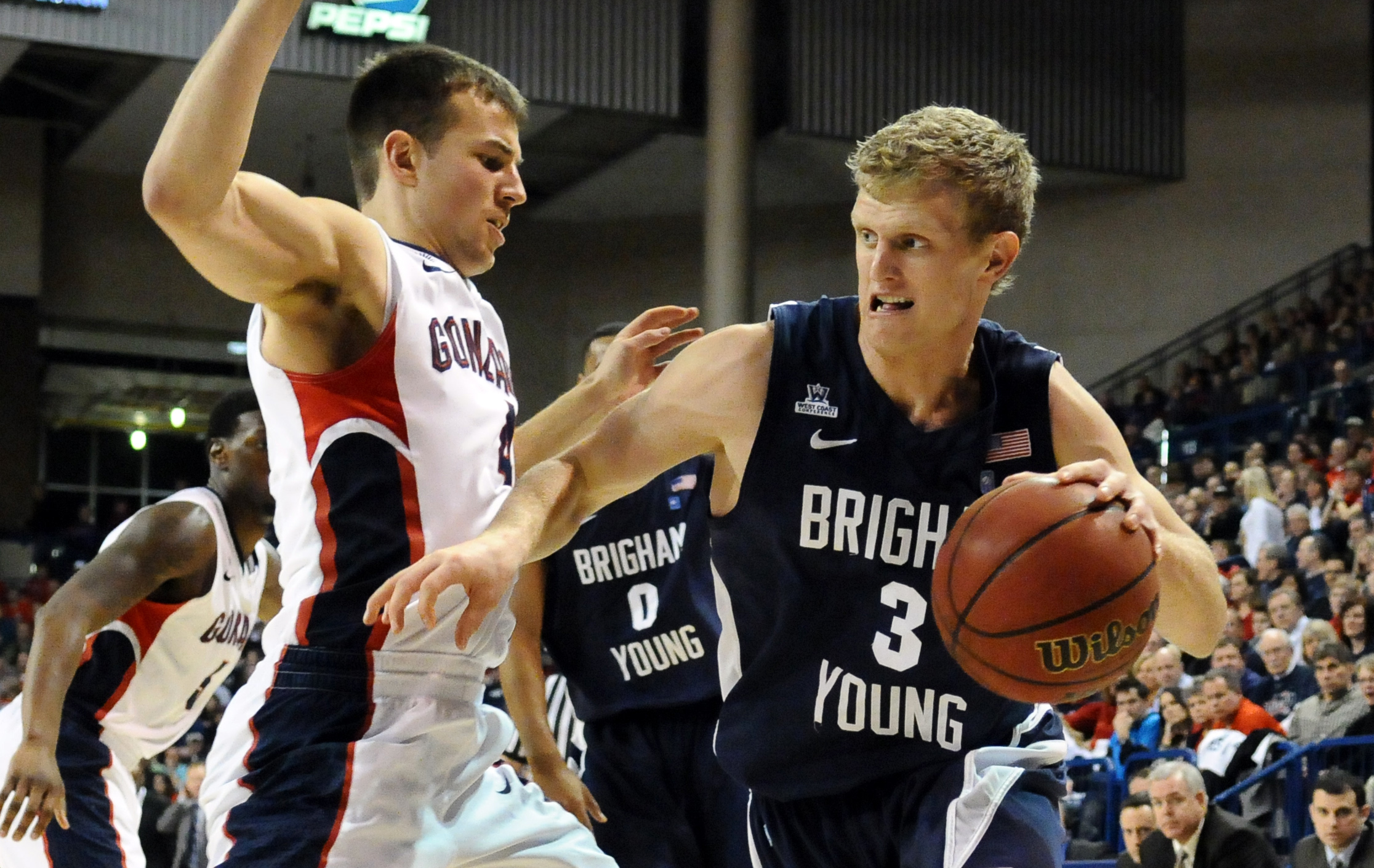- How The Grinch Stole the Rivalry
- 9-Line Prediction: BYU v. UMass
- 9-Line Prediction: BYU v. UNLV
- 9-Line Prediction: BYU v. Fresno St.
- 9-Line Prediction: BYU v. SJSU
- 9-Line Prediction: BYU v. ECU
- 9-Line Prediction: BYU v. Mississippi State
- 9-Line Prediction: BYU v. Boise State
- 9-Line Prediction: BYU at Utah State
- 9-Line Prediction: BYU v. Wisconsin
- How BYU’s offense & defense have stacked up since 2005
- 9-Line Prediction: BYU v. Utah
- 9-Line Prediction: BYU v. LSU
- 9-Line Prediction: BYU v. Portland State
- By the Numbers: 2017 Season Preview
Data: Road wins separate good teams from the great ones
- By Greg Welch
- Updated: April 3, 2014

Greg analyzes how BYU basketball performs on the road, the true test of great teams.
With another season in the books for Dave Rose and his crew, this last season can be evaluated and compared to all the others. We can look back and ask, what was BYU’s best win in the 2013-14 season? Or what was BYU’s worst loss? And how do those wins and losses for this season compare to the last few years’?
There are all kinds of ways to evaluate and rank college basketball teams. For simplicity and consistency, this article uses Ken Pomeroy’s rankings. For 2013-14, those rankings tells us that the highest ranked team BYU beat was Gonzaga (who ended the year ranked 22, and was beaten in Provo) but since it’s harder for all teams to win on the road, perhaps the Cougar’s best win of the year came in Palo Alto over 36th-ranked Stanford.
Each season has highs and lows, and for 2013-14, I think it’s tough to argue there’s a loss that could do more damage to a tournament resume than to 183rd-ranked Loyola Marymount, BYU’s second-worst road loss in the data analyzed. With that format in mind, I pulled the best home win, best road win and worst road loss to give a quick snapshot for the last 12 seasons of BYU basketball.
Below is a chart showing the same snapshot for each of the last 12 years:

Looking at the Dave Rose and even some of the Steve Cleveland era, BYU’s best wins were neutral wins over Daniel Bobick’s 3rd-ranked and eventual Final Four Oklahoma State team on a semi-neutral floor; the 6th-ranked Louisville team; and the two wins over 7th-ranked San Diego State in 2011. Of all those, it seems clear that true road win at San Diego in the heart of conference play is the win with the highest degree of difficultly.
BYU’s worst loss of the last 12 years came at Lamar in overtime. It was BYU’s only loss to a team that ended the year ranked worse than 200 in the last 12 years. BYU scheduled the game as a senior send off for Keena Young. Whatever the reason it was put on the schedule, it was a game BYU had no business losing — but that’s sports.
Perhaps the biggest insight after looking at this data is the difference in value between home wins and road losses. Only looking at the best home win doesn’t seem to have a strong correlation with a team’s overall quality. Great teams, good teams and average teams usually seem to be able to grab a top 50 win at home here or there. Also, there are sometimes limits on how many good teams are scheduled to play a team at home. It’s just not every year that a top 10 team visits Provo. BYU’s best chances for home wins last year was against 21st-ranked Iowa State and 22nd-ranked Gonzaga.
After looking at this chart, the clearest sign of a great team seems to be to not just win some games on the road, but to win all but the toughest games on the road. From 2009-2011, BYU did not lose a road game (or any game) to a team ranked lower than 75. When the worst road loss of the year is to 53rd-ranked UCLA, clearly, you’re having a really good year.
It may seem pretty simple to say “good teams don’t lose,” but a chart like this may help BYU fans put some perspective on playing road games in the West Coast Conference. Other than BYU and Gonzaga, all eight of the other WCC schools feel between 74 (St Mary’s) and 183 (Loyola Marymount) last year. If next year looks the same, BYU will face another eight games on the road of teams in the could-beat-you-at-their-place range. BYU also travels to Utah State next year which could be a ninth game against that type of team since the Aggies finished ranked 131 last year.
Boiling it down: Winning on the road is really hard in college basketball. After looking at BYU’s last 12 basketball teams, it appears average teams can win at home, good teams can win on the road, and great teams win consistently on the road.
I’m not the first to say that, but while fans may be looking forward more to the next headline-grabbing top 50 win at home, the games that really might push Dave Rose’s crew to the next level could be a consistent set of grind-it-out victories at San Fransisco, Utah State, Saint Mary’s, and Loyola Marymount in 2015.
Related Posts
About Greg Welch
I graduated from BYU in 2002 and then from Virginia Commonwealth University in 2004. After growing up in Provo and attending nearly every home game from 1983 through 2001, I've followed BYU from New York City, Richmond, Dallas, Irvine and now Des Moines. Professionally, I work in creative advertising.
BYU ROSTER – by @Kalani4Prez
Recent Articles
- Setting 2018 Expectations in 3 Easy Steps March 23, 2018
- How The Grinch Stole the Rivalry December 13, 2017
- 9-Line Prediction: BYU v. UMass November 18, 2017
- 9-Line Prediction: BYU v. UNLV November 10, 2017
- 9-Line Prediction: BYU v. Fresno St. November 3, 2017



